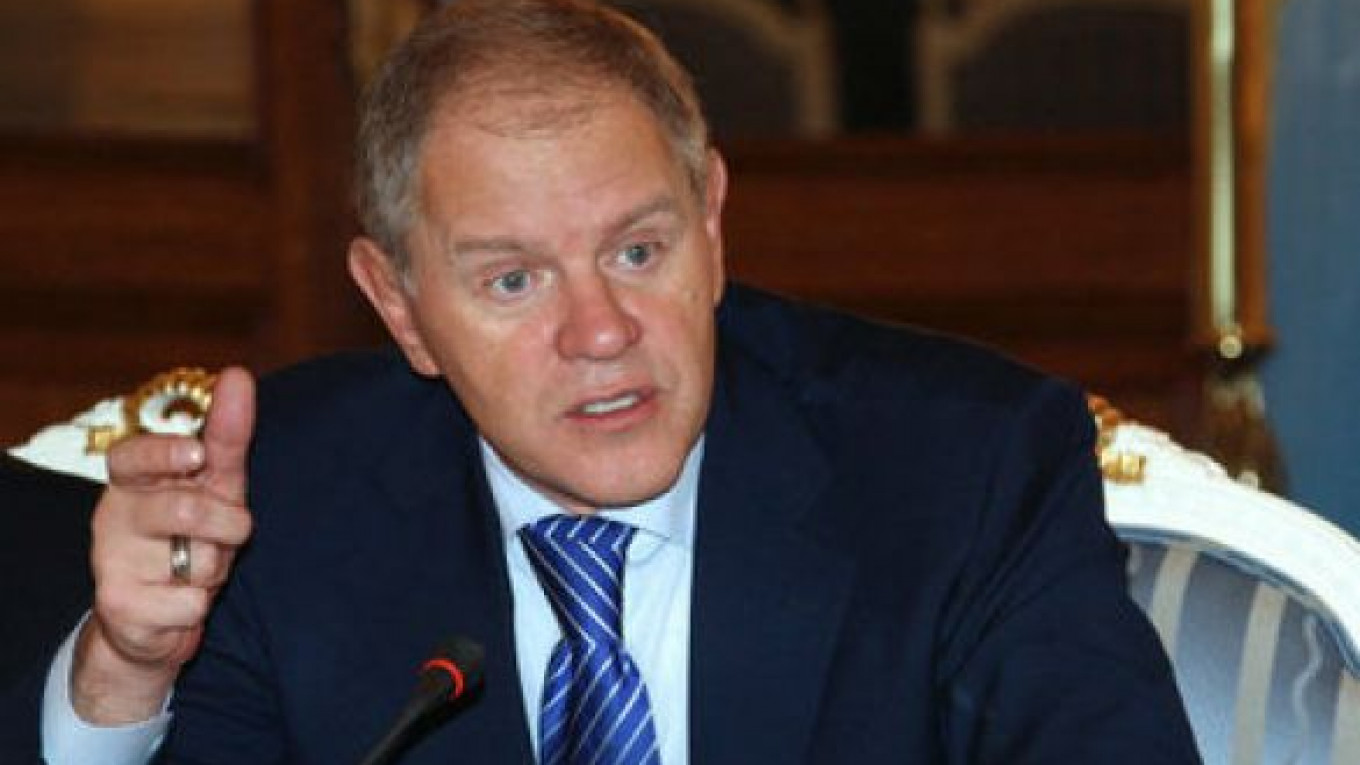Investigators on Friday opened a criminal case on forgery charges against Federal Fisheries Agency head Andrei Krainy, the latest high-ranking official to be targeted in an anti-corruption campaign by the government.
The charges relate to a corruption case opened three years ago against a former head of the northwest branch of the fisheries agency, Sergei Muravyev.
The Investigative Committee said Krainy tried to help Muravyev escape a harsher charge for accepting a 5 million ruble ($165,000) bribe by dismissing him from his post retroactively in May 2011.
Taking a bribe as a government official is punishable by up to 15 years in prison, while the charge for someone not in state service carries a maximum sentence of 10 years behind bars.
Muravyev was officially fired on May 23, 2011, while investigators say Krainy did not order the firing until May 25, after Muravyev had already been detained on bribery charges.
Krainy's spokesman, Alexander Savelyev, denied the charges and said they were "puzzled" as to why investigators were opening the case now, as the Muravyev case is being heard in court.
Savelyev said "our main defense is the truth, which is on our side."
Krainy himself denied the charges to Interfax, saying he had decided to fire Muravyev in April 2011 and waited a month because Muravyev was on sick leave at the time. Krainy said his agency had conducted an investigation into the northwest branch in connection with alleged violations beginning in late 2010.
Investigators said in a statement that they would question Krainy in connection with the case in the near future.
Alexei Mukhin, head of the Kremlin-connected Center for Political Information, said the case signaled that "against all public expectations, the government is getting serious about corruption."
"The reason is that it wants the overall system to be governable," he said.
At least a dozen mid-level and high-ranking officials have been charged or fired in connection with corruption cases since November, when Anatoly Serdyukov was removed from his post as defense minister after the announcement of a multi-million-dollar fraud case linked to the ministry.
Serdyukov has been questioned multiple times as a witness in the case, and investigators have said he could become a suspect.
Last week, investigators questioned former Agriculture Minister Yelena Skrynnik as a witness in a criminal investigation announced last year into a $16 million fraud at a state-owned company.
Mukhin said he expects other cases to be opened soon and linked the charges against Krainy with the cases involving Serdyukov and Skrynnik.
When asked why he thought investigators waited several years to open a case against Krainy, Mukhin said they were "probably waiting for a signal."
Russia's fishing industry, the fifth largest in the world with annual production worth hundreds of millions of dollars, is based mainly in the Far East, where over half of all Russian fish is harvested. Most of the country's catch is exported to Japan, South Korea and China.
Krainy has portrayed himself as a tough negotiator with Russia's export partners. In an interview with Komsomolskaya Pravda last year, he said the Japanese ambassador fell ill during talks and asked for an ambulance, to which Krainy responded by telling him to "be strong and exhibit his Japanese character, since Moscow suffers from traffic jams and it will take a while for the ambulance to come."
In the same interview he said two South Korean deputy ministers once "cried in his office, asking him to give more fish to Korea."
Contact the author at i.nechepurenko@gmail.com
Related articles:
A Message from The Moscow Times:
Dear readers,
We are facing unprecedented challenges. Russia's Prosecutor General's Office has designated The Moscow Times as an "undesirable" organization, criminalizing our work and putting our staff at risk of prosecution. This follows our earlier unjust labeling as a "foreign agent."
These actions are direct attempts to silence independent journalism in Russia. The authorities claim our work "discredits the decisions of the Russian leadership." We see things differently: we strive to provide accurate, unbiased reporting on Russia.
We, the journalists of The Moscow Times, refuse to be silenced. But to continue our work, we need your help.
Your support, no matter how small, makes a world of difference. If you can, please support us monthly starting from just $2. It's quick to set up, and every contribution makes a significant impact.
By supporting The Moscow Times, you're defending open, independent journalism in the face of repression. Thank you for standing with us.
Remind me later.






